Mehul Reuben DasMar 08, 2023 09:16:48 IST
Pros
– Clean software
– Good built quality
– Good number of 5G bands for the price
– Good battery life
– 90Hz refresh rate on the display
– Good performance for the price
– Value for money package
Cons
– Display seems washed out as it lacks contrast
– Slow charging
– Camera module could have been better
Price: Rs 11,999 for the tested 6GB + 128GB variant.
Rating: 3/5
With the sentiment towards certain Chinese smartphone brands right now, it is perfectly understandable if people are looking for a 5G-capable smartphone, made completely in India. Lava, the Indian smartphone brand that has been trying to make comeback into the market since 2021 has some devices to offer. The Lava Blaze 5G is one such device.
Because the base variant, the 4GB + 128GB variant starts at Rs 10,999, the Lava Blaze 5G is perhaps the cheapest 5G smartphone in India. Besides the price, the smartphone has some pretty solid things going for, it at least on paper. For example, it has a solid 5,000 mAh battery, a 50MP primary sensor, and a bunch of more features.
So how does the Lava Blaze 5G stack up and is it worth your money and time if you’re looking for a cheap and capable budget 5G smartphone? We take a look.
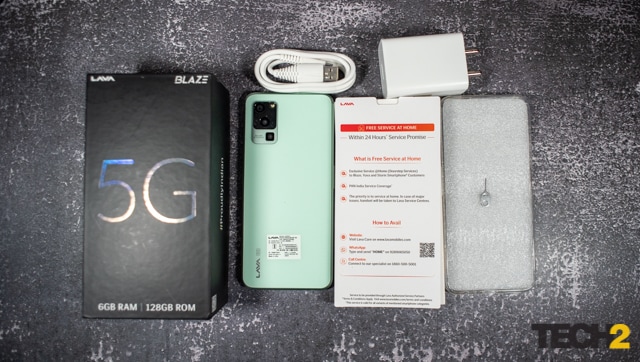
Lava Blaze 5G Review: The design
The Lava Blaze 5G has a very clean aesthetic. Despite its price, Lava has used glass for the rear panel, which in our glass green unit had a matte finish. The frame around the device, despite being made of plastic, does not feel cheap or tacky. We also love how the rear panel deals with fingerprints – there’s no trace of it ever having some.
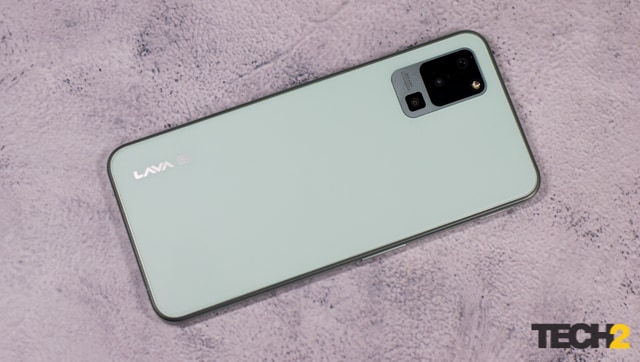
The edges are flat, which gives the impression that the device will feel sharp to hold, but that is not the case. The front and rear panels have been neatly tucked into the frame, which bulges out a little. This makes the device feel very comfortable to hold as well.
The camera island on the top left corner of the rear panel has the triple camera set up placed diagonally, which gives it a somewhat different appeal.
All in all, the device feels solidly built and really nice to hold. The weight of the device only adds to this feeling.
On the front, we get a teardrop notch on the front display that houses the front-facing camera, and some pretty thick bezels on all four sides. The bottom bezel is particularly thick.
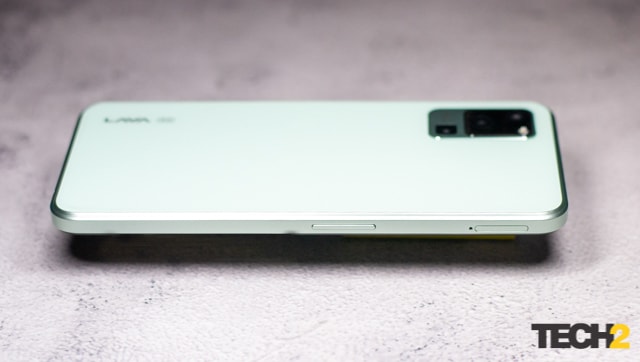
On the right-hand side of the device, we get a power button which also doubles up as a fingerprint scanner. The volume rockers on the left side of the device, along with the SIM tray which can house 2 SIM cards or one SIM and a microSDXC card of up to 1 TB. All buttons on the device feel solid and tactile.
At the bottom, we see a speaker grille, the 3.5mm audio jack, as well as the USB Type-C port, which is rated at USB 2.0 speeds, and a mic.
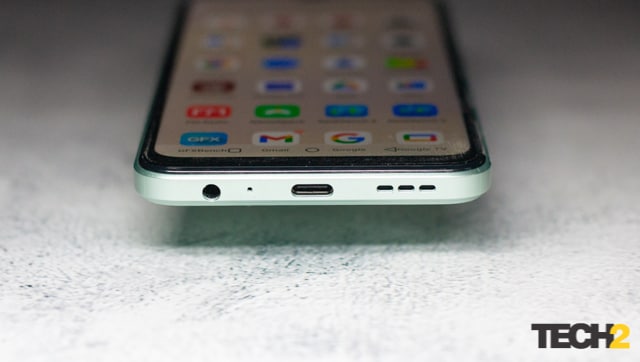
All in all, the design of the device is pretty clean and simplistic, with nothing too premium or wild. On the plus side though, it does feel solid and sturdy in the hand.
Lava Blaze 5G Review: The display
Lava has equipped the Blaze 5G with a 6.5-inch HD+ LCD display with a resolution of 720×1600 pixels which supports a refresh rate of 90Hz. The viewing angles are fairly decent. If you turn up the brightness to its highest setting, the screen is moderately bright and can be read in broad daylight outside. Unfortunately, that’s all the good things that we can say about the display.
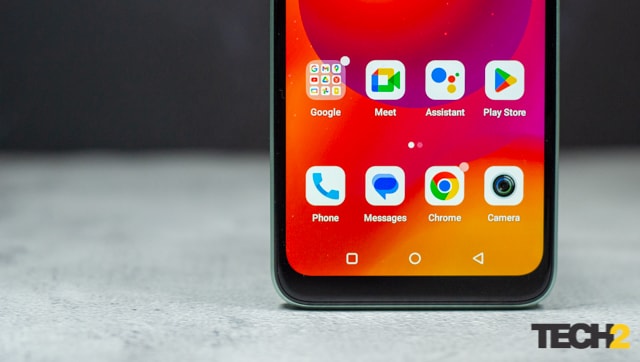
Although the display gets bright, the colours look washed out, even for an LCD panel. You severely miss the dynamic range or good contrast ratio when you’re watching content on the Lava Blaze 5G.
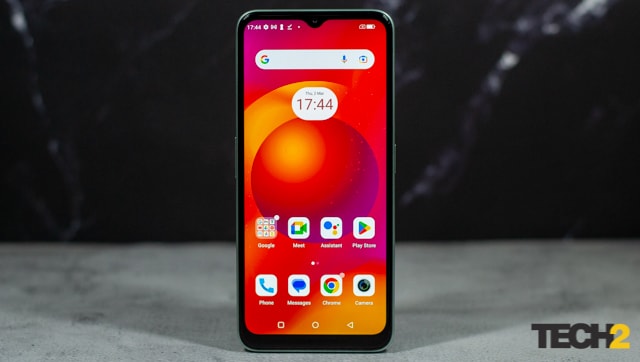
The display’s colours appeared to be a touch muted. The display itself came off as somewhat washed out and lacked punch and warmth.
Lava Blaze 5G Review: The camera
We get a triple camera setup at the rear of the Lava Blaze 5G. There is a 50MP primary camera, a 2-megapixel macro camera and a VGA sensor. Only the 50MP main camera is worth discussing as the other two, don’t really contribute in any way. The device also has an 8MP front camera, which is just adequate enough.
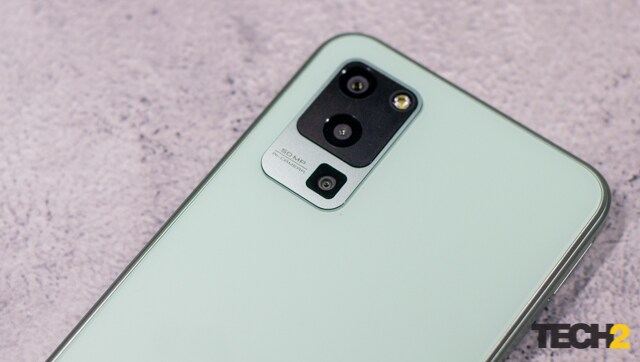
When it comes to taking pictures in the daylight, the main camera on the back does a pretty good job. Although having a low dynamic range, the sensor is nevertheless able to capture fine details. Nonetheless, it does tend to enhance colours. For a smartphone that is about Rs 10,000, the results from the main camera in the day are pretty impressive.
The same cannot be said for low-light photography. As long as there is some ambient light, the main camera produces respectable images in low light. During low light conditions, the images often turned out to be blurry and out of focus, with details blown all over the place.
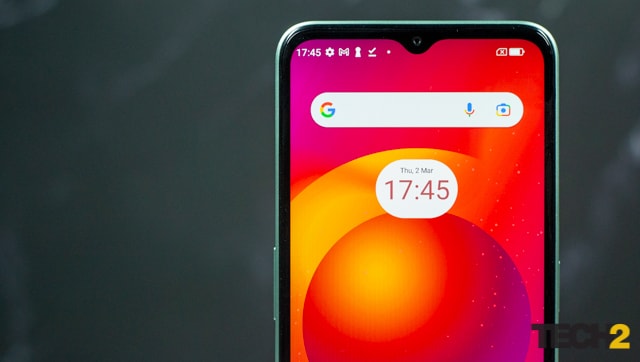
As for the front-facing camera, it is an 8MP unit that is placed behind the teardrop notch on the display. When we opened the photographs on our workstations, they were OK, but when we viewed them on the device’s display, they appeared a little washed out. The skin tones looked adequate. Although the front-facing camera’s photos were highly processed so that even the smallest details in the skin were almost completely lost, they nevertheless had a grainy appearance.
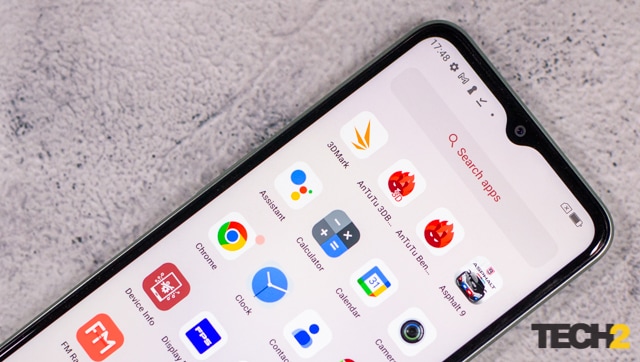
As for videos shot on the Lava Blaze 5G, they have some slightly boosted colours and pretty decent detail. The dynamic range is also good
Lava Blaze 5G Review: The performance, software experience and UI
The Lava Blaze 5G is powered by the MediaTek Dimensity 700 chipset, an octa-core SoC. Our unit was equipped with 128GB UFS 2.2 storage and 6GB of RAM, which can further be expanded by 3GB a total of 9GB RAM.
The Dimensity 700 SoC is a pretty decent processor if you’re not a very demanding user. The smartphone handles juggling between apps pretty well, and most daily tasks can be carried out without a hitch.
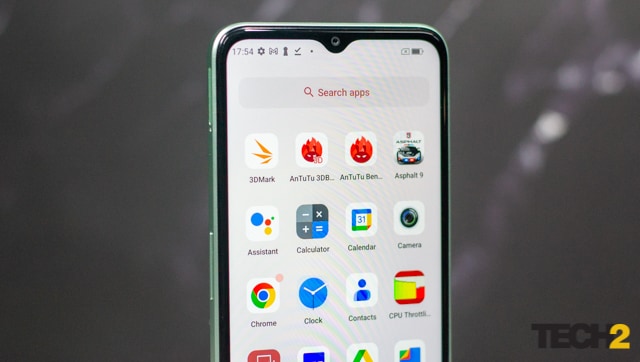
The Lava Blaze 5G can handle most games pretty well, but users will need to temper their expectations. Games like Asphalt 9 and Call of Duty: Mobile were playable albeit at medium graphics, during which we were getting about 35-40 fps. You get smooth, playable frame rates, but not at a very good visual preset.
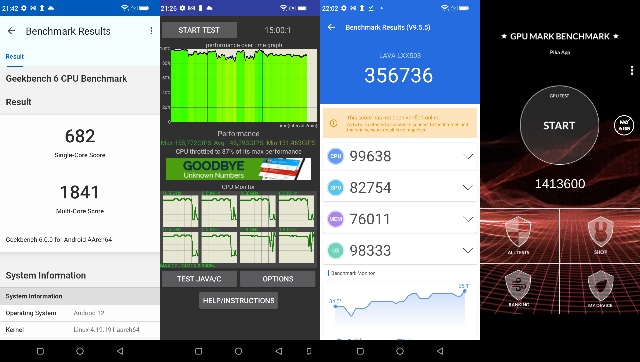
The software is something that Lava seriously needs to get its act together. The device ships with Android 12 out of the box. Even though the device was launched a few months ago, it still hasn’t received the Android 13 update. As of writing this review, the latest update it received was the December security patch.
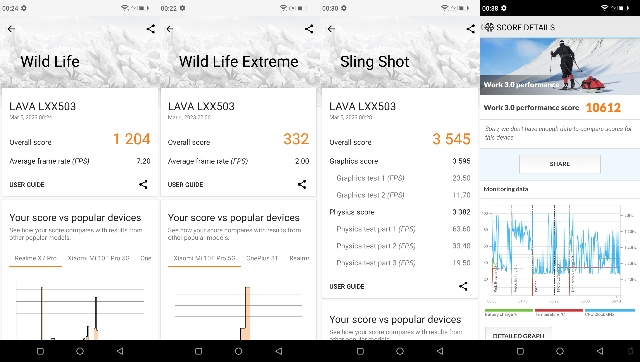
Although Lava has pledged to release the Android 13 upgrade, no specific date has been given. Moreover, Lava has committed to two years of quarterly security updates. The one good thing about the software experience is that the device has almost no bloatware at all, barring a few Lava-specific apps.
For connectivity, the Blaze 5G gets WiFi 6E, BlueTooth 5.0, 8 5G bands, a 3.5mm audio jack and USB-C at USB 2.0 speeds. 5G connectivity is pretty solid on the Lava Blaze 5G. At about 400 metres away from a 5G tower, we were getting about 105 MBPS.
Lava Blaze 5G Review: The battery life
Like most smartphones in this budget, the battery life is the best feature of the device. The Blaze 5G’s 5000 mAh battery easily lasts a day when used extensively at about 70 per cent brightness. We were consistently getting over 11 hours of screen on time
The Blaze 5G comes with a 12W charger, although the device supports 15W charging. This means charging is slower than usual by today’s standards. Once we had completely discharged the device, it took us over 3 hours to fully recharge it.
Lava Blaze 5G Review: The verdict
The Lava Blaze 5G is a pretty average phone that is competing in a very crowded segment and faces some pretty solid competition. The Lava Blaze 5G is among the cheapest 5G smartphones in India, among the likes of the Samsung Galaxy M13 5G, Poco M4 5G and M4 Pro 5G, the Motorola Moto G51 5G, all of whom are slightly more expensive than the Lava Blaze 5G price tag of Rs 11,999.
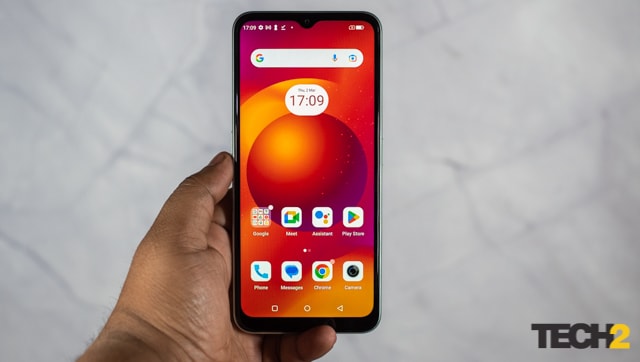
Despite using an SoC that is almost a year old, the device manages to hold its own. And given the Lava Blaze 5G’s price, battery life, 90Hz display and the fact that it does really well on 5G, it is really difficult to fault the device for the omissions that Lava chose. Having said that, Lava could have done better with the display. Also, they seriously need to work on the frequency with which they push their software upgrades.










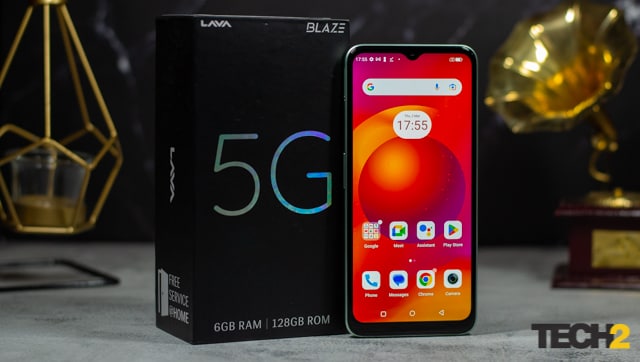










Discussion about this post